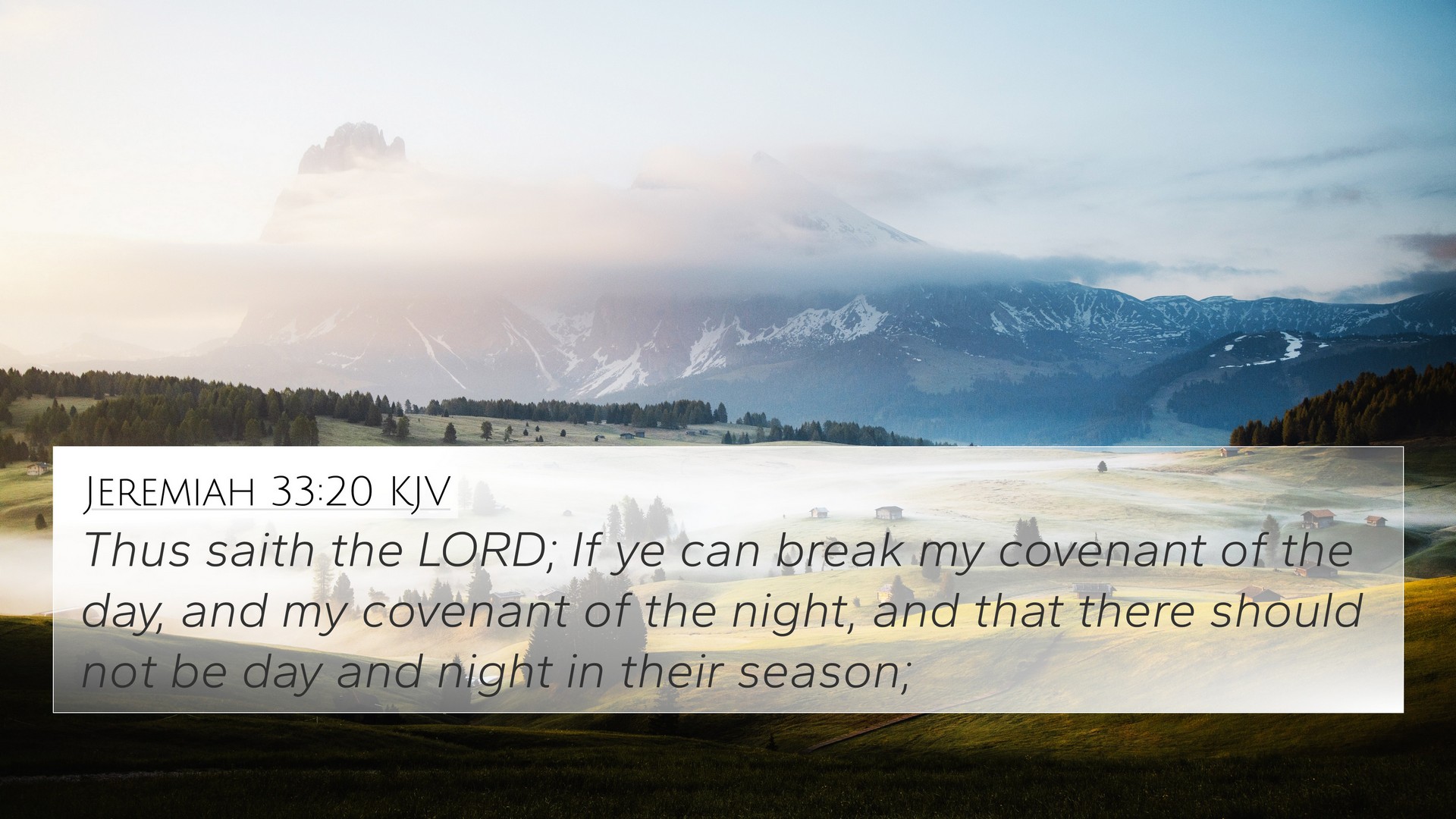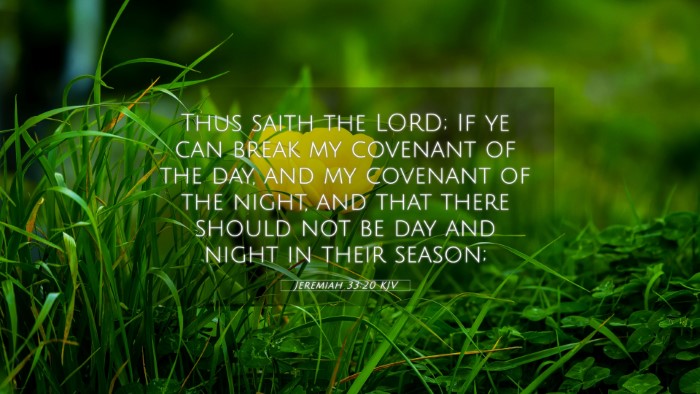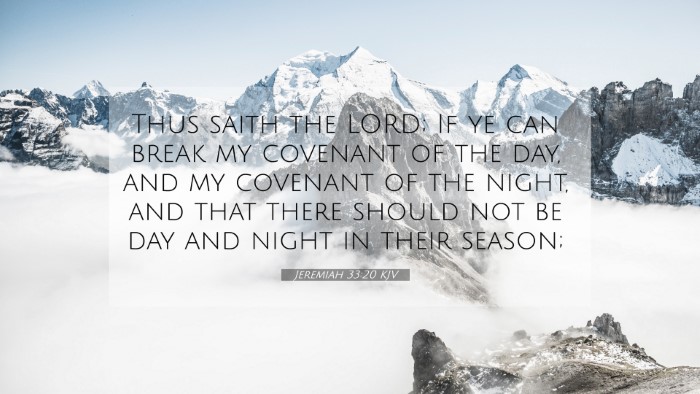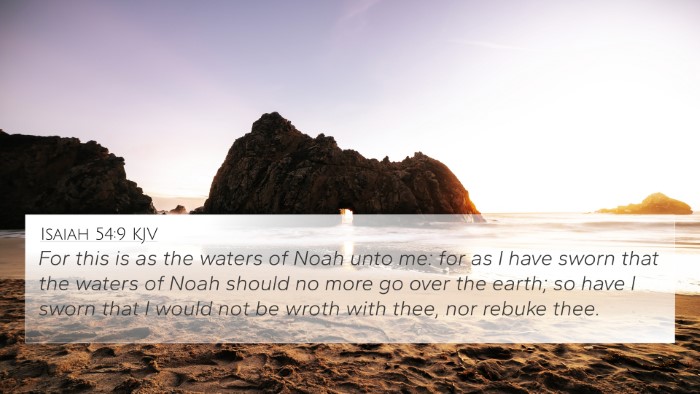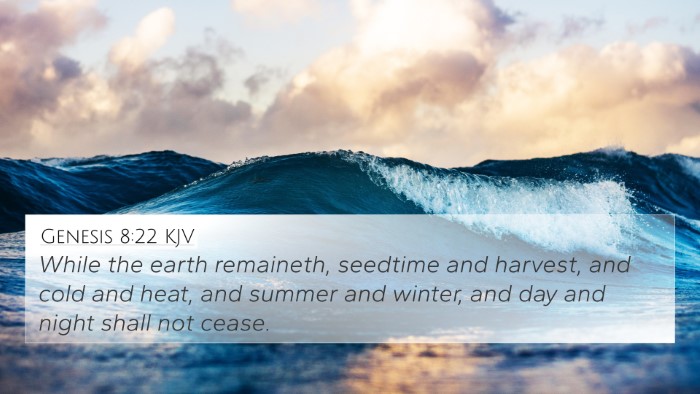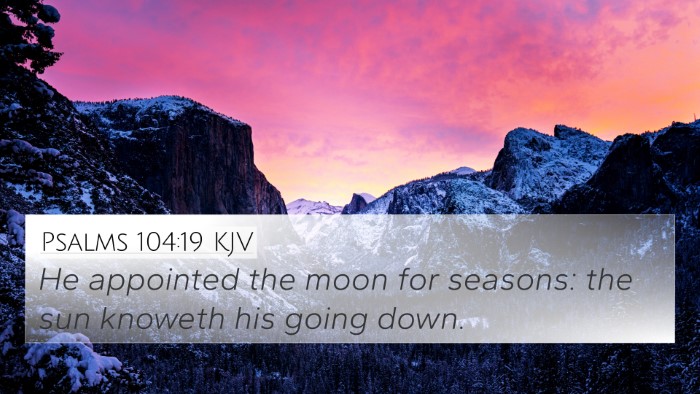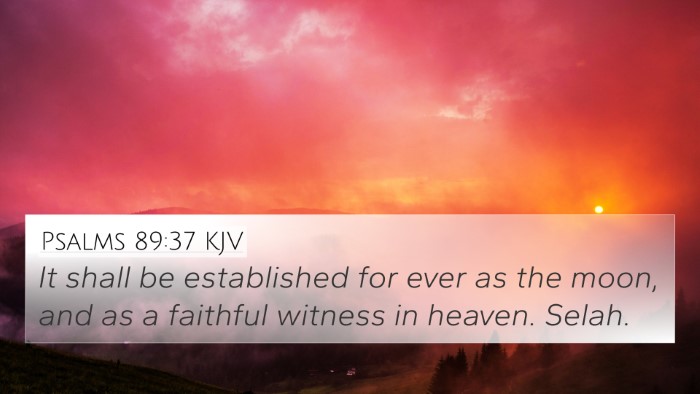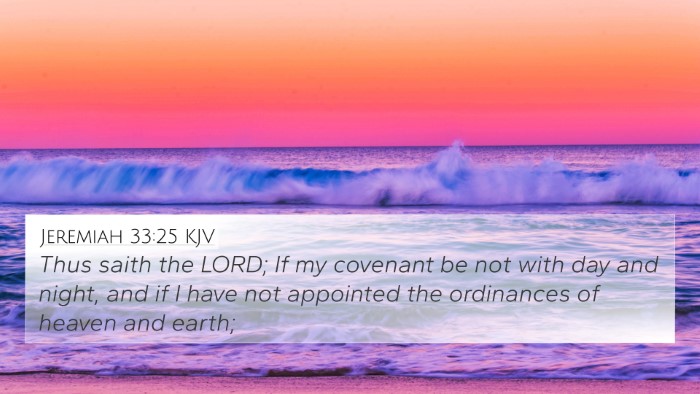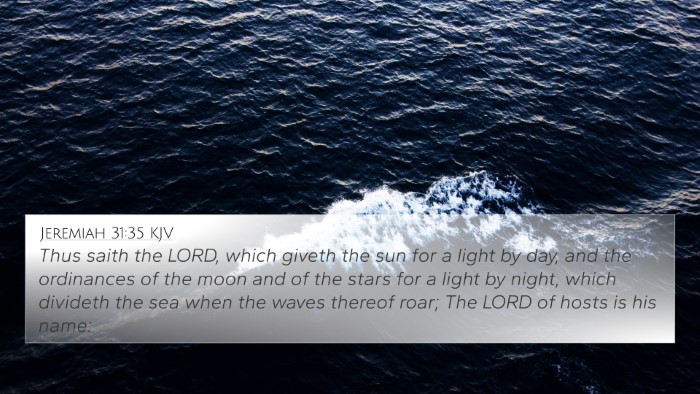Understanding Jeremiah 33:20
Verse: "Thus saith the Lord; If ye can break my covenant of the day, and my covenant of the night, and that there should not be day and night in their season;" (Jeremiah 33:20)
Summary of Meaning
This verse emphasizes God's unchanging nature and the certainty of His covenants. God uses the established order of day and night as a metaphor for His reliability. The passage is part of a broader promise of restoration, revealing that just as day and night are consistent, so too is His commitment to His people.
Commentary Insights
-
Matthew Henry: Henry interprets this verse as an assertion of the steadfastness of God's covenants. He underscores that breaking such an agreement would be impossible and likens it to the unbreakable cycle of day and night.
-
Albert Barnes: Barnes emphasizes that the new covenant, which includes the restoration of Israel, is as secure as the natural order of creation. He adds that the day-night cycle demonstrates God's faithful provision and protection for His people.
-
Adam Clarke: Clarke reflects on the concept of divine sovereignty in this verse. He points out that God's covenants reflect His power over both time and existence, thus assuring believers of His unwavering faithfulness.
Cross-References
This verse connects with several other Biblical passages, revealing inter-Biblical dialogues on God's covenants:
- Genesis 8:22: Emphasizes the constancy of God’s order in creation.
- Psalm 89:34: Affirms God's promise that His covenant will not be broken.
- Hebrews 10:23: Encourages believers to hold fast to their faith, grounded in God's faithfulness.
- 2 Timothy 2:13: Highlights God's unwavering nature and the assurance of His promises.
- Isaiah 54:10: Speaks to God's enduring covenant of peace despite human unfaithfulness.
- Jeremiah 31:35-36: Further elaborates on God's commitment to the rhythms of day and night as a representation of His promises.
- Malachi 3:6: Proclaims God’s unchanging nature, reinforcing the theme of His everlasting covenant.
Connections Between Bible Verses
Exploring the thematic connections and linking Bible scriptures enhances understanding of biblical truths. Below are key ideas on how Jeremiah 33:20 informs and is informed by other scriptures:
- Cross-referencing Biblical texts can reveal how God's promises span both the Old and New Testaments, indicating a continuous narrative of redemption.
- Understanding the implications of God’s unchanging covenants assists in the comparative analysis between different Biblical books and authors, such as Pauline epistles and the prophetic writings.
- By connecting scriptures such as Lamentations 3:22-23 and Romans 8:28, believers can see the assurance of God’s mercies being new every morning.
Thematic Bible Verse Connections
The concept of covenants can be further examined through various themes in scripture:
- God's Faithfulness: Explore how God's commitment is reflected in verses that reiterate His intention toward His people.
- Restoration: Jeremiah 33:20 sits within a wider context of restoration, making connections with prophetic texts about hope and reconciliation.
- Creation Order and Providence: Linking scriptures on creation helps illustrate God’s control over the natural order as a basis for His promises.
Tools for Bible Cross-Referencing
To inspire further study and reflection, various resources can be utilized:
- Bible concordances that list verses by keywords and themes.
- Bible cross-reference guides which depict connections directly in the margins.
- Cross-reference Bible study tools that allow deeper exploration of linked concepts across different passages.
How to Use Bible Cross-References
Utilize systematic approaches to engaging with the scriptures:
- Identifying key themes and tracing their development through the Biblical canon.
- Employing comparative study methods for gaining insights into Pauline epistles and their relationship to Old Testament teachings.
- Understanding similarities and contrasts between prophetic voices and New Testament affirmations, enhancing personal and communal understanding of God's message.
Conclusion
Jeremiah 33:20 stands as a testament to God's unbreakable covenants and unchanging nature. This verse, when studied among others, enriches the believer's understanding of God's faithfulness and commitment to His creation. Engaging with cross-references unveils a deeper appreciation of the interconnectedness of Scriptures and the overarching narrative of God's redemptive plan.
